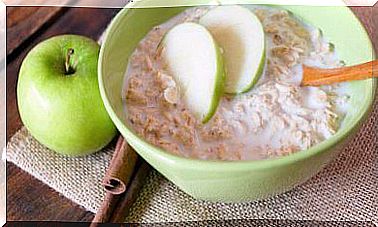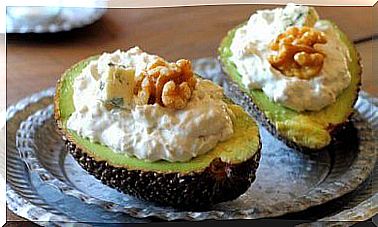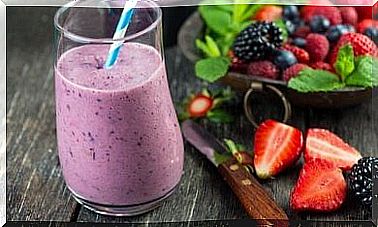Which Vegetable Oils Are Beneficial For Our Health?

Vegetable oils can have many different origins. Some of them come from seeds, while others come from grains or fruits. Are they the same? Are they all equally beneficial to us?
The truth is that no, not all vegetable oils are the same. Each type has different properties and characteristics due to their origin and the way they are cooked. Therefore, each oil has a value and a specific application.
Since we usually use vegetable oils to prepare different foods, it may be interesting to know a little more about the different varieties available on the market, as well as what they contribute.
Vegetable oils with nutritional properties
Oils are mainly made from fats, which is why they are not rich in proteins, carbohydrates, vitamins and trace minerals. They will however help the body to absorb fat-soluble vitamins, such as vitamin A, D, E and K.
In general, fats in oil that are liquid at room temperature are healthy and give us metabolic energy. These fats have the most benefits for the brain. This organ contains a lot of fat and uses it for function and for neural communication.
Without fat, our brains would actually be “stupid”. Despite the fact that it contains a lot of fat, it does not produce as many of the basic fats it needs to function, which is why you need to get them in you through your diet. Furthermore , vegetable oils are recommended for cardiovascular balance and good skin health, among other things.
The preferred vegetable oils are those that contain most of the essential fatty acids that the body needs to function. Given the specific composition of each of them, the way you prepare food with them and the recipes you use can also vary.
Below you can see some examples of this.
Nut oils
Nut oils, such as walnut and almond oils, or seed oils, such as pumpkin seeds or grape seed oil, are rich in unsaturated fats. In fact , these oils are the ones that have the most polyunsaturated fats.
Precisely because of this, it is more sensitive to degradation and oxidizes faster. They should not be exposed to excessive heat, as this may release toxic substances.
They are therefore ideal in marinades and cold dishes. As these oils have a very low melting point, they usually do not solidify when you put them in the refrigerator. Thus, they are perfect for storing food in the refrigerator as they will not solidify.
Olive oil
Olive oil is the “gold in liquid form” of the Mediterranean diet. This oil is very rich in monounsaturated fatty acids, as well as vitamin E and other natural antioxidants.
Natural antioxidants help reduce the effects of oxidative stress that toxic waste can generate during cell activity. They “cleanse” the blood.
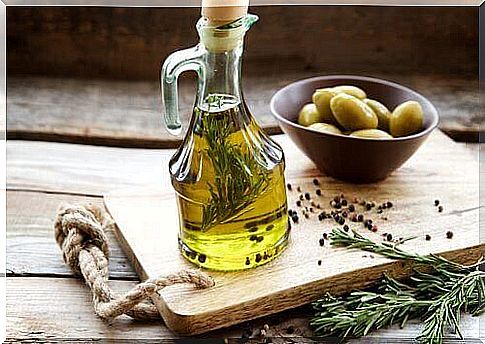
Olive oil does not tolerate too much heat, which is why it can break down if exposed to too much heat. Precisely because of this, you need to be careful when frying food with olive oil, so that you prevent decomposition.
Rapeseed oil
Rapeseed oil is rich in healthy unsaturated fats, thanks to the fact that it is believed that this oil can help lower “bad” cholesterol levels by up to 17%, some professionals consider it a good idea to make it a regular part of a healthy diet. .
However, this oil does not have a high melting point, which is why it is not recommended to fry foods that require heating the oil at high temperatures. This process can cause chemical reactions that break down the oil and release toxic substances.
Coconut oil
Coconut oil is rich in saturated fat, which has both advantages and disadvantages. First of all, coconut oil can increase “bad” cholesterol levels compared to olive oil, precisely because it is rich in saturated fat.
However, it is considered healthier than butter (which is rich in saturated fat) if you want to regulate your cholesterol levels. In general, diet-related guidelines recommend that you do not consume too much of this oil.
However, we can not rule out that coconut oil also has some good properties. It is recommended, among other things, for skin care, as it moisturizes and balances the skin. Also, it seems to be a good nutrient for the brain.
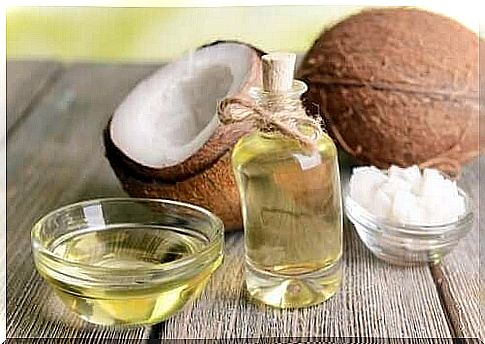
Vegetable oils: The fat content of each type
Olive oil, rapeseed oil, vegetable oil and coconut oil all contain the same number of calories and the same amount of total fat (120 and 14 g, respectively). However, the composition of each fat type (saturated and unsaturated) is different (2 g, 1 g, 2 g and 13 g saturated fat and 10 g, 8 g, 3 g and 1 g monounsaturated fat, respectively). The content of polyunsaturated fat is 1.5 g, 4 g, 8 g and 0 g, respectively. All these figures are per tablespoon.
Not all vegetable oils fit in the same recipe
Thanks to their different content of saturated and unsaturated fats, different oils are preferred for different cooking methods and cooking techniques. It is therefore recommended that you avoid using the same oil to prepare all kinds of dishes. Ideally, you should use the most appropriate oil for each food, depending on its properties and tolerance to high temperatures, as we mentioned above.
There is no doubt that olive oil is the most versatile vegetable oil. You can use it both to prepare food and in cold sauces, dressings, mayonnaise and hot sauces. However, it is not advisable to fry and deep fry food with olive oil.
When it comes to vegetable oils and rapeseed oil, these are recommended for preparing dishes that do not involve exposing them to high temperatures, because heating these oils too much can change their properties.
Finally, remember that coconut oil is the best type to use when baking.




